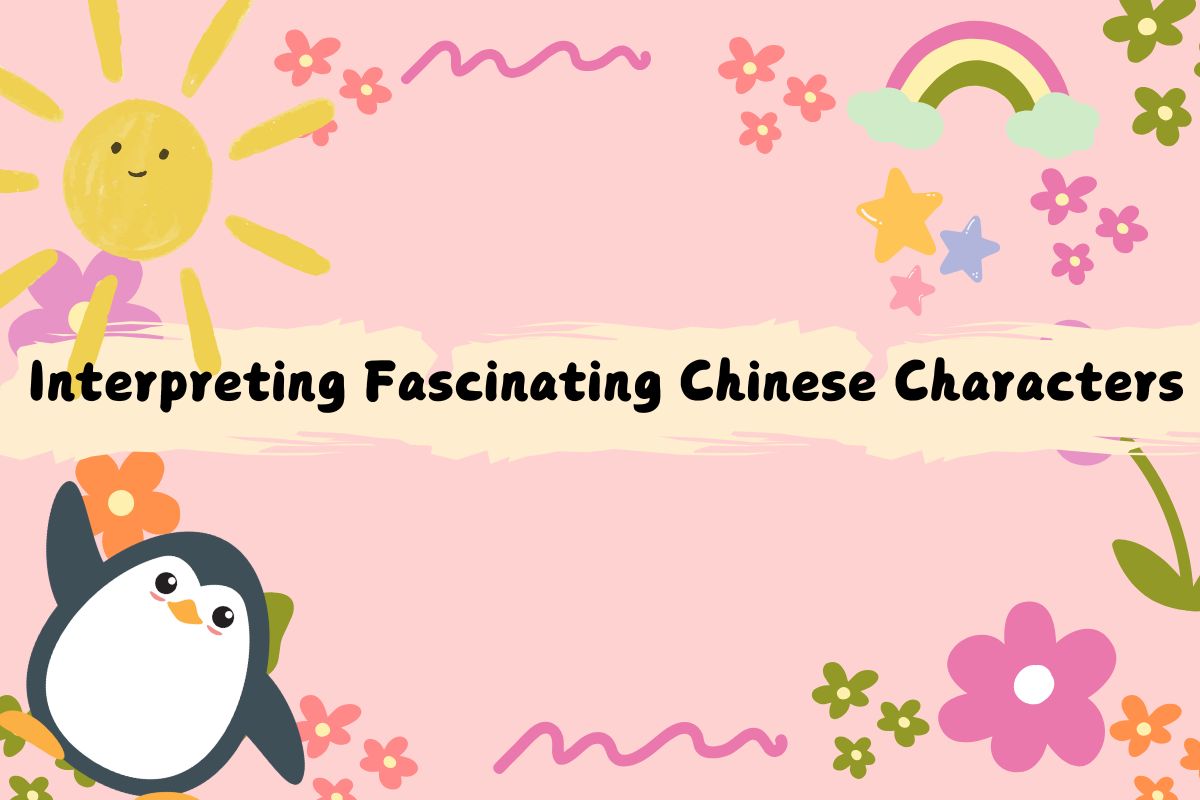Interpreting Fascinating Chinese Characters
Have you ever been deeply impressed by some unique Chinese characters? For instance, characters like "炎" and "森" can be guessed at their meanings just by observing their components. Isn't it magical? There are many similar characters, and this article will share them with you! After reading, you will surely have a whole new understanding and feeling towards Chinese characters.

"品" (pǐn)
In ancient times, people often used"三"(three) to represent a large quantity. The three "口" in this character can be understood as many mouths. So, what are many mouths doing together? They are actually tasting things. For example, when people eat together, each person has their own feelings and evaluations, creating the character "品."
Moreover, the character "品" also carries the meanings of "品格" (pǐn gé) and "品质" (pǐn zhì). Just like how the words and deeds of many people converge to form a person's character, similar to how the evaluations of many mouths form the assessment of the taste of food.

Therefore, the character "品" embodies the meanings of tasting, savoring, and appraising. It not only reflects the experience of food and drinks but also extends to appreciating and evaluating various aspects such as art, culture, and morality. When we say someone has "品味" (pǐn wèi), it means they can keenly perceive and appreciate the subtle and beautiful qualities in things, similar to how one can discern the diverse facets of life in a cup of tea.
品味 (pǐn wèi), verb, savour
Examples:
- You should savour the moment.
你应该品味这一刻。
nǐ yīng gāi pǐn wèi zhè yī kè 。 - He knows how to savour life.
他懂得如何品味生活。
tā dǒng de rú hé pǐn wèi shēng huó 。
"森" (sēn)
Now, let's take a look at the character "森," which is composed of three "木" (mù). "木" represents trees, and when many trees gather together, it forms a forest.

Entering a forest, you will see densely packed trees, some towering tall, others with lush branches and leaves. The numerous trees create a vast and mysterious ecosystem. Therefore, the character "森" conveys a sense of lushness and abundance, as if one can see the lush and endless forest scenery.
"炎" (yán)
Finally, let's discuss the character "炎," which consists of two fire"火" (huǒ). When looking at this character, one can almost visualize a scene of raging flames burning bright.
Fire itself is hot, and when two fires come together, it intensifies the heat. Thus, "炎" indicates extreme heat. For example, in the scorching summer, the sun roasts the earth like a blazing fireball, giving a sense of unbearable and intense heat, just like the strong warmth expressed by the character "炎." Similarly, during a fire outbreak, the fierce and powerful flames also exemplify the scorching and formidable strength depicted by "炎."

Therefore, the character "炎" represents not only the heat, brightness, and power of fire but also hints at its fierceness and danger. In Chinese, we use "炎热" (yán rè) to describe extremely hot weather, as if being roasted by a big fire. In "炎黄子孙" (yán huáng zǐ sūn), the "炎" (yán) is related to the legendary figure, Yan Emperor “炎帝”, considered one of the ancestors of the Chinese nation. Just like how fire brought civilization and progress to humanity, Yan Emperor made significant contributions to ancient agriculture and medicine, like the dawn of civilization and advancement ignited by fire.

炎热 (yán rè), adjective, sweltering
Examples:
- The weather is very sweltering today.
今天的天气很炎热。
jīn tiān de tiān qì hěn yán rè 。 - We can't stand the sweltering heat.
我们受不了这炎热的天气。
wǒ men shòu bù liǎo zhè yán rè de tiān qì 。
The depth of meaning contained in Chinese characters is truly profound. I hope that through this fascinating interpretation, you will develop a greater love for the enchanting Chinese language and find more joy and surprises on the journey of learning Chinese characters.